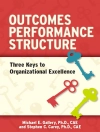This book provides a rare integrative interpretation of government-enterprise relations in China, offering readers a comprehensive understanding of the topic. Focusing on the government and its principal goals, it describes the transition of government-enterprise relations and highlights the embedding of the entities of government and enterprises in specific political, economic and social environments. Further, it analyzes how the government’s institutional arrangement regulates the behavior of various types of enterprises with different structures, and the logic mechanisms such institutional arrangements use to change and shape government-enterprise relations. Based on these issues and logic mechanisms, the book points out the complexity of government-enterprise relations and the diversity of their transition path, thus reflecting some typical features in the overall reform of China and discussing specific factors related to China’s social development experience.
สารบัญ
Introduction: A Holistic Analysis Framework and the Research Question.- The Government and Enterprises “Embedded” in Multifold Relations.- The Government and State-owned Enterprises (SOEs).- The Government and Rural Collective Enterprises.- The Government and Private Enterprises.- The Government-Enterprise Relations Change Model.
เกี่ยวกับผู้แต่ง
Qingong
Wei was granted with the Ph D of Sociology by Graduate School of Chinese Academy of Social Sciences in 2015. He is an assistant professor of National Academy of Development and Strategy, Renmin University of China. His research interests are social development, social governance , social attitudes and social inequality.
Hanlin
Li obtained his Ph D in Sociology from the Bielefeld University in Germany in 1984 and became a Full Professor in Sociology in 1988 at the Institute of Sociology, the Chinese Academy of Social Sciences. His current research interests involve sociology of institution, social change, social network analysis, sociology of organization, and quality of working life.





